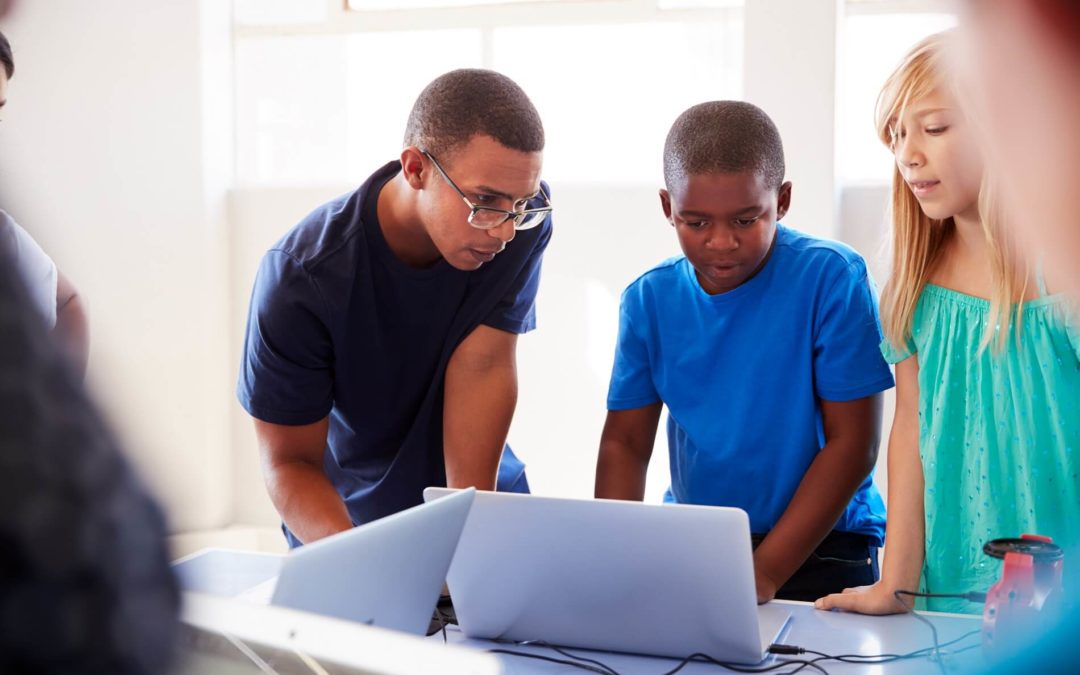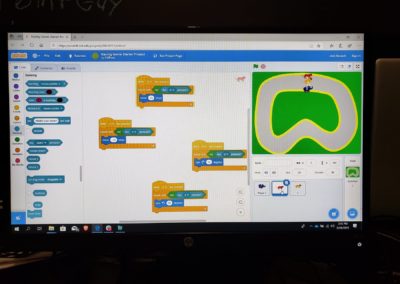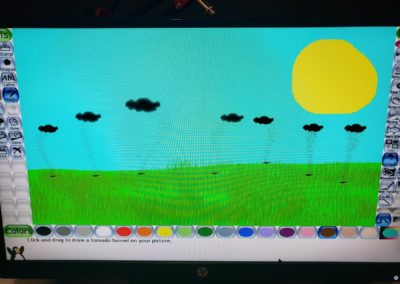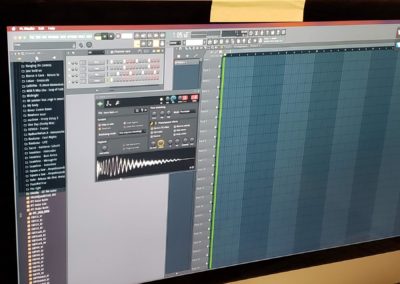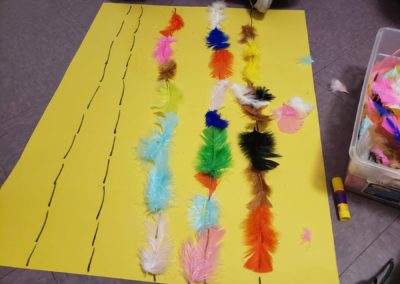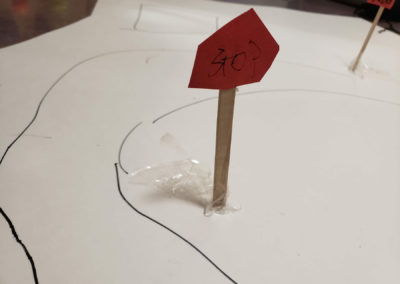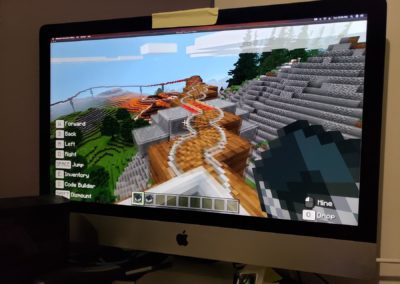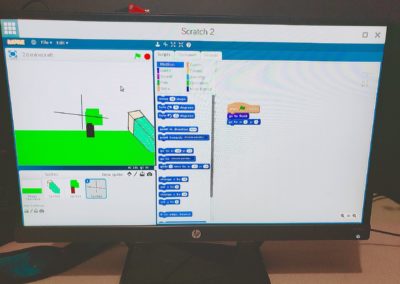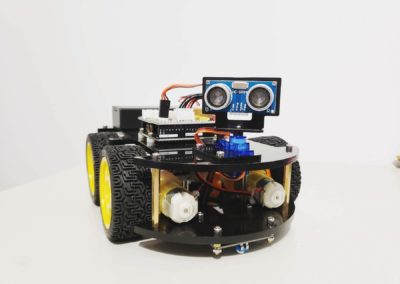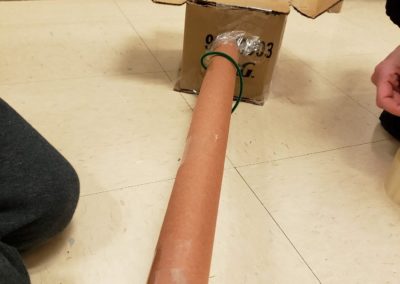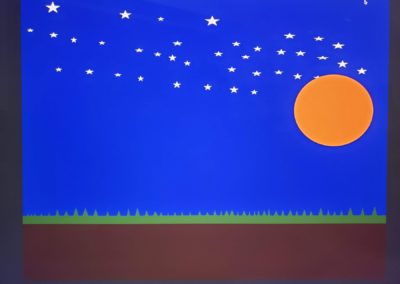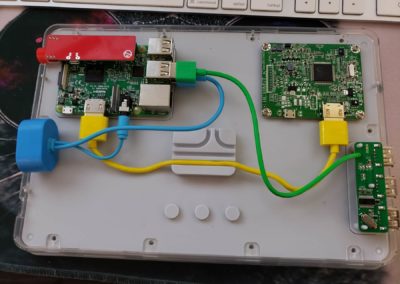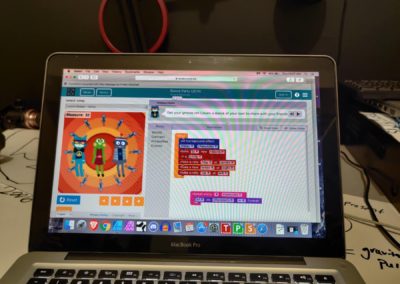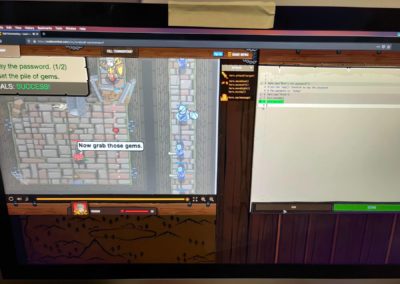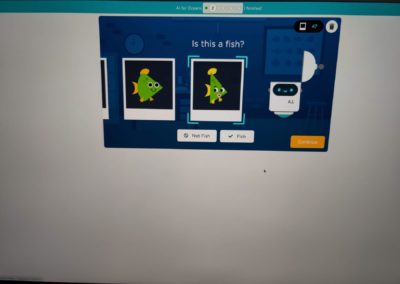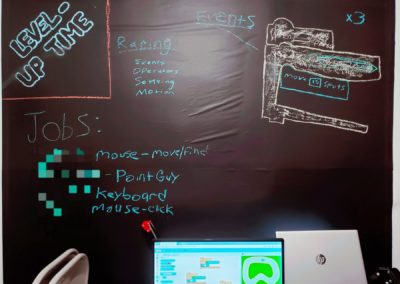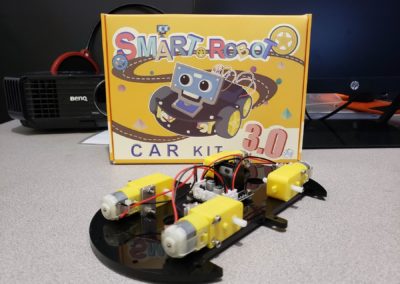I’m thrilled to welcome Chris Hernandez this week to the podcast for the first time after meeting him in March at the NYC DIR Conference! He is an Ed Tech, coach, instructional designer, and a digital creator. He is also the Media Specialist at the Rebecca School in Manhattan, a Developmental, Individual differences, Relationship-based (DIR) Model school and he holds a DIR Certificate from the International Council on Development and Learning (ICDL), the home of DIR/Floortime. Everyone kept telling me I had to meet Chris who does the Rebecca Listener podcast. The more I learned about what Chris does, the more I realized I had to share it all with the DIR world!
The Future is Here: Fostering Neurodiverse Students’ Media Literacy
The Past
Chris is the Media Specialist at the Rebecca School. He started at the school as a para, then became a Teaching Assistant (T.A.), then the Media Specialist. As a T.A. he was looking to get into tech–namely, the educational technology side of things. A role opened up which began as the handler of the school’s social media, designing the school yearbook, and photographing and video taping events and activities at the school. STEM (Science, Technology, Engineering, and Mathematics curriculum/methodology) was really big at the time and everyone was talking about coding. He wanted to start a STEM program at the school.
He’s since moved away from that because STEM has roots in science education, technology and engineering–which are both coding, and also in mathematics education. It’s now marketed as the coding curriculum, but it’s not solely coding. Chris wanted to use the kids’ love of coding and programming in a DIR/Floortime way. So he started computer groups with the assistance of an Occupational Therapist, para, and/or T.A. of three or four students with another facilitator and divided the groups based on where they were developmentally.
The Computer Groups
One group whose ages ranged from 12 to 16 years old were developmentally at about the fifth functional emotional developmental capacity (FEDC 5). They would work on coding, centered around making video games. The other group loved computers but didn’t understand how video games were made or what coding was. They were developmentally at the third developmental capacity (FEDC 3), and sometimes struggling at at this capacity. With this younger group there was one student who was struggling to read.
Thinking of coding developmentally, they started with, “What is a computer? Let’s build a computer together!” There was a lot of hands-on stuff before even considering reading, eye focus skills, movement skills moving a mouse and using a keyboard. It eventually went into their Individual differences. For the child who couldn’t read, they started out with a simple pre-programmed computer and his only task was to control the mouse. The student who was strongest at reading was the typist.
After two or three months, they switched it up and put the students where they were weakest. For the student who struggled with reading, they would physically hold the keyboard up in front of him and have a writing pad next to him to show him, “This is what an “i” looks like“, etc. At the end of the day, Chris says, it’s not about the coding. It was about the DIR/Floortime aspect of it. Eventually it moved on into having a student who loved music. They used Chrome Music Lab to create musical tunes that would loop over and over again then moved to FL Studio to compose a song using loops where you create a sequence of sounds that you cut and paste so the loops repeat.
Chris then had multiple groups going on throughout the week at different developmental levels. But not all the students liked coding or computers. In terms of coding, you go from the what-is-a-computer stage to block-based coding that tells you what will happen and moves to “What do you think will happen?” The block-based coding is also colour coded, so it’s easy to memorize and recognize. Then they build up to actual coding for a video game. At that point, they can visualize that they will see something at the end.
Who is Chris?
Chris has a background in graphic design, video editing and social media marketing/advertising from his undergraduate degree. He is self-taught in coding after a few classes in undergrad and through free online classes. Then he learned Python, an end-programming language that he pushes on computer groups. He also just recently finished his Master’s degree in Educational Technology and Instructional Design which is for creating curriculum for businesses or educational facilities for adults or children. He’s interested in creating a coding curriculum for children with neurodevelopmental differences, using DIR/Floortime.
Chris, and Donnie Welch, whom we had on last week, are doing things that aren’t known as mainstream curricula but really are the future. Kids now are raised with computers and they need to know how to use them and how to code and how to be creative.
Chris’ job now is to set up kids for success in the long-term aspect of life as part of the neurodiverse community.
I’m blown away with everything Chris does. The majority of people working in schools everywhere can barely use email let alone everything Chris is giving his students access to. I can see him becoming a national trainer for educators on how to do this curriculum. The fact that he focuses on the neurodiverse community and DIR/Floortime is just incredible.
Media Literacy
As everything went virtual, Chris had been talking about media literacy: MESH. It’s born out of the aspect that certain things are missing from all types of curriculum. Media literacy, Ethics, Social Learning, and History. These are the things that we forget about in education, he says. Since they aren’t able to continue their computer groups virtually, he transformed his curriculum into MESH. He says that we want to teach students about technology, but we tend not to teach them about the danger of technology.
Kids play video games online and they talk about their ‘friends’ who are not really their friends. There’s a rise of online predators who target children in video games. Chris wants to teach that stranger danger applies not only in real life, but also online. In his media literacy groups at school, the kids seem to think that everyone online is trustworthy, and that everything that’s online is true, which can be the opposite. Parents also consult with Chris frequently about password safety.
Gamifying Education with DIR/Floortime
On Chris’ website LevelUp Time Studio he has resources for neurodiverse students, parents, and educators. He blogs on media literacy and teaching coding, especially for the neurodiverse population. He also has a YouTube channel and reviews video games for parents on a vodcast (video podcast) about whether they are appropriate for children. He also just started a mini-series on how to teach and learn coding in a developmental way. Our kids are way beyond where the parents are and don’t realize all that their children are doing online.
Parents think their children don’t know how to do these things yet, Chris says. While we want our children to explore, there’s a lot to be careful about with their online presence when they don’t realize the consequences of what can happen online. Chris also screens calls from companies that try to sell programs to the school. Chris asks them, “Oh, you guys are so great. What are you going to do when one of the kids smashes your keyboard into your screen?” He usually gets silence. They might say, “Oh, we won’t accept those kids.” Chris replies, “But all kids deserve to learn.“
Buy Chris a coffee!
- If you’re as impressed with all that Chris does as I am, consider buying him a coffee!
- If you enjoy watching all your content in Instagram, look up Chris @countrantula.
- Check out the Rebecca Listener podcast!
Chris’ Work at Rebecca School
Chris does the fabulous Rebecca Listener podcast where he interviews his colleagues at the Rebecca School about how they use DIR/Floortime. At his job review with his boss, she asked him how he will improve next year. He wondered, “Why doesn’t everyone know about DIR/Floortime?” and so the podcast was born to teach people about DIR/Floortime. He talks about how to connect DIR/Floortime in whatever occupational role you do, whether you’re a teacher, a speech therapist, an occupational therapist, etc.
The school parents love it and he’s received great feedback from them and other listeners. He hopes people will learn how to apply DIR/Floortime. My favourite podcasts were the two most recent ones about improv and Floortime, and about messy play with food and Floortime, based on this publication by two Rebecca School speech and language therapists. Chris also posts snippets from the school’s newsletter to Medium. He saw that this useful information was getting sent home with students in the newsletter and said this information should be posted for the world to see.
The Transition From In-Person to Online to Hybrid Learning Before the pandemic, Chris was already looking into how to use technology for the school. He came across that Microsoft gave out accounts to schools for staff to use for their classes that was HIPAA compliant. Soon, all of their materials were accessible online. It was almost as if he had prepared in advance. He avoided Google classroom because he doesn’t trust them after they were caught collecting information from student data in schools in Europe where they have the strictest of privacy laws. So he adopted Microsoft Office 365. Then the pandemic hit.
It was challenging for everyone: teachers, students, and parents when the school had to go fully online. Chris was creating resources for everyone which helped make the transition smoother. In September, the school moved to hybrid learning where there are two cohorts that alternate coming in two days per week. They’ve installed OWL webcams that can scan the entire room and virtually project your classroom for those watching online. Chris says it was good coincidence that he was finishing his Masters in Instructional Design and Educational Technology where he was learning about structuring learning management systems for classrooms.
Chris not only has to keep up on all of the technology but also the laws to make sure they’re HIPAA Compliant. It’s a lot of work and he’s still learning. I mentioned how we recently covered the transition to online learning with Dave Nelson from Threshold Community Program if people are interested in viewing that as well.
Everyone had to find their place in this new style of learning… It’s a learning process for me as well.
Chris’ Floortime for Floortime
On the Rebecca Listener, Chris always concludes his podcasts by giving his guests floortime for Floortime. I gave him this opportunity to conclude this week’s podcast. He says that every school–not district–should have a position like his, especially in this new digital age. Publishing a blog post for a school creates a level of transparency that is needed. Being able to publish podcasts and blog posts creates a community for students, staff and parents to understand what’s going on at school. It also can help the extended family understand what’s happening in the school community.
Thank you, Chris, for inspiring us with this podcast. I know I’m inspired by this younger generation of Floortimers who are carrying the torch from Dr. Greenspan‘s work and the Rebecca School is such a great model of how DIR/Floortime can be applied in a school setting. Please consider sharing this post on Facebook or Twitter and feel free to add questions, relevant comments or experiences in the Comments section below. Next week we will revisit parent support with a focus on fathers with psychologist Robert Naseef.
Until next week… here’s to affecting autism through playful interactions!

